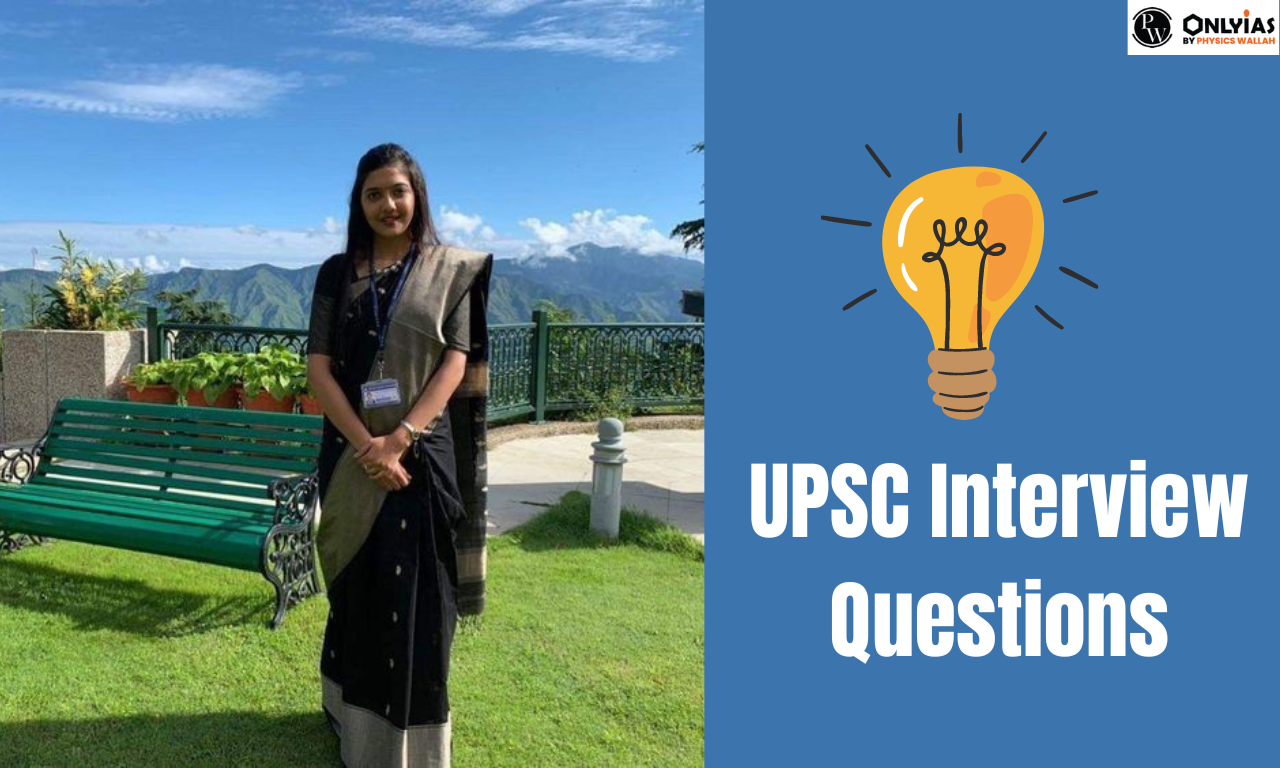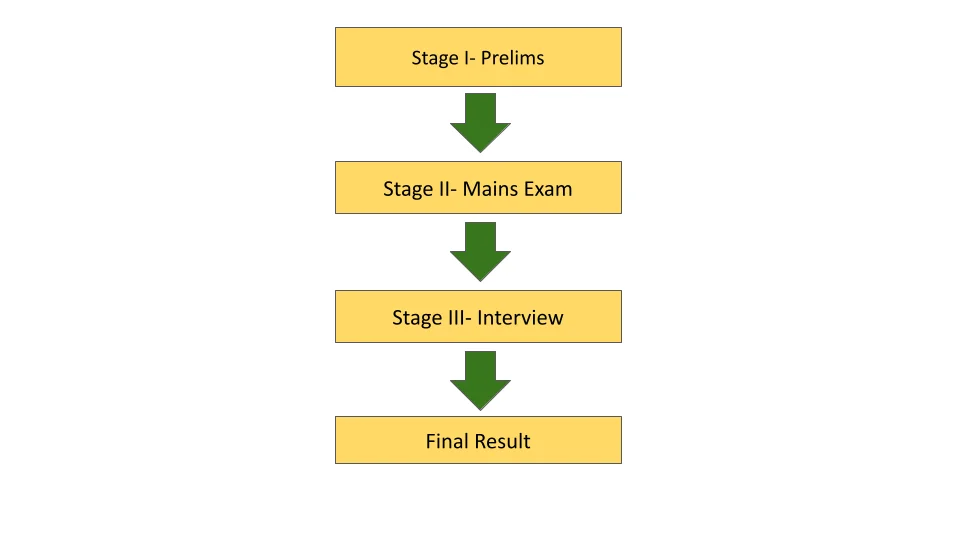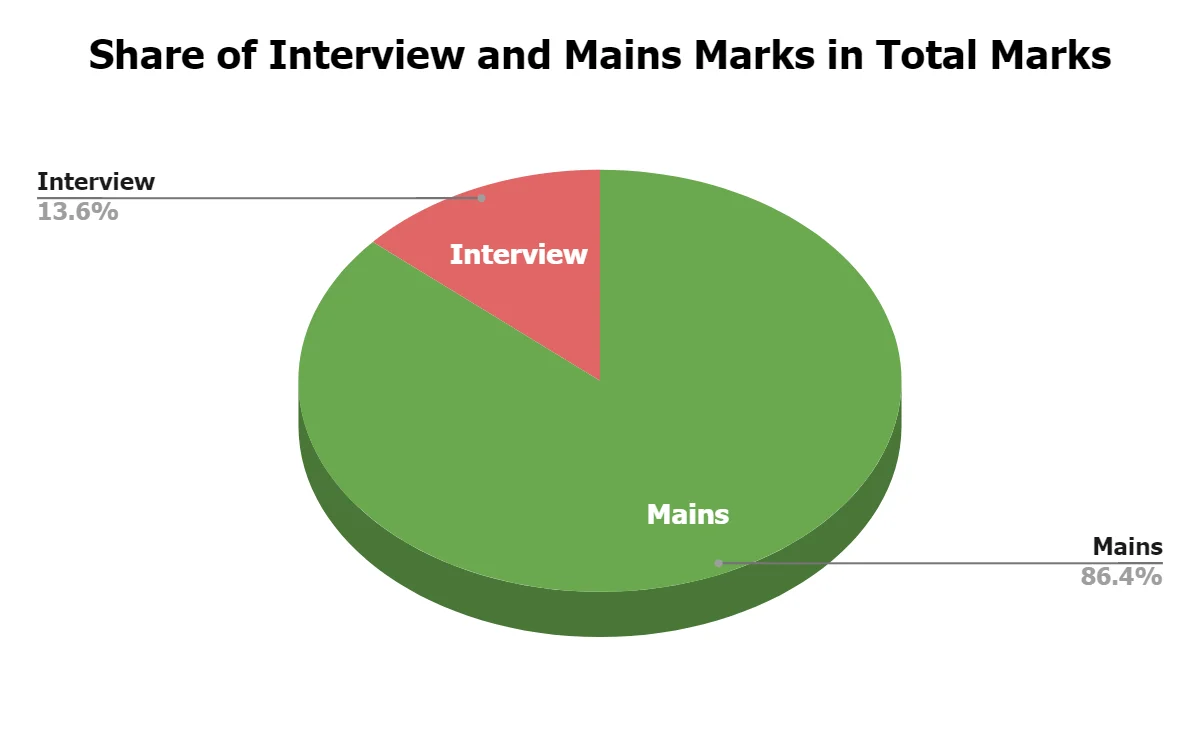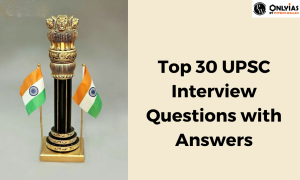UPSC Interview Questions help aspirants to prepare well for IAS Interview. UPSC interview questions assess knowledge, critical thinking, and suitability for civil service roles. In this article we have covered most common UPSC Interview Questions with answers.

The UPSC Civil Services Examination (IAS) is known for its rigorous selection process, which includes multiple stages such as the Preliminary Examination, Main Examination, and the Personality Test (Interview). The interview stage assesses a candidate’s suitability for a career in civil services and covers a wide range of topics, including current affairs, general knowledge, ethics, and personal experiences. While the exact questions asked can vary, here are some types of questions that have been known to be asked during UPSC IAS interviews.
UPSC Interview also known as Personality Test is the final stage of the UPSC Civil Services Examination Process. It comes after candidates clear the mains examination. The final marks of the candidate in this complete cycle of UPSC Examination comes from Mains examination and interview.

In this complete UPSC Examination process there are three stages


Here are Sample Answers for the top 30 UPSC Interview Questions.
[Note: These answers are just for the reference of the aspirant, and should not be copied as a whole. UPSC demands uniqueness and perspective of the individual and hence the Aspirants should be making their own answers as per the latest trends and events.]
I’m a motivated individual with a background in economics. I’ve always been passionate about public service, which led me to pursue the UPSC exam. I’ve gained valuable experience through internships in government organizations and have a keen interest in sustainable development.
I believe that effective governance is vital for societal progress. My aspiration to contribute to the betterment of our country and bring about positive change inspired me to take up the challenge of the UPSC exam.
The rise of digital privacy concerns in the wake of increased internet usage and data sharing has caught my attention. Balancing technological advancements with individuals’ right to privacy is a complex challenge that requires comprehensive policymaking.
The Indian Constitution serves as the backbone of our democracy, outlining fundamental rights, principles, and the structure of the government. It provides a framework for ensuring justice, equality, and liberty for all citizens.
One of my strengths is my ability to communicate effectively, which has helped me in various team projects. On the other hand, I sometimes tend to overanalyze situations, which I’m working on to improve.
During a group project, conflicting opinions emerged. I facilitated open discussions, encouraged each member’s input, and helped mediate disagreements to reach a collaborative solution that benefited everyone.
I prioritize tasks based on urgency and importance using techniques like the Eisenhower Matrix. Additionally, I allocate specific time blocks for focused work and plan regular breaks to maintain productivity.
The media plays a critical role in informing citizens, holding authorities accountable, and shaping public opinion. However, maintaining journalistic integrity and avoiding sensationalism are essential to ensure responsible reporting.
The ‘Atmanirbhar Bharat’ initiative, aimed at promoting self-reliance and boosting domestic industries, is an interesting policy. It highlights the need for a balanced approach between self-sufficiency and global cooperation.
Inclusive growth entails economic development that benefits all segments of society, reducing disparities in income and opportunities. It focuses on addressing social inequalities and promoting sustainable development.
The Panchayati Raj system empowers local communities by devolving governance and decision-making powers to the grassroots level. It fosters participatory democracy, promotes rural development, and ensures better delivery of services.
India is a tapestry of diverse cultures, languages, religions, and traditions. This diversity is a source of national pride and a testament to our ability to coexist harmoniously despite differences.
Globalization has facilitated cross-border trade, technology transfer, and cultural exchange. While it offers opportunities for economic growth, it also poses challenges such as unequal distribution of benefits and cultural homogenization.
The Indian Independence Movement led by Mahatma Gandhi played a pivotal role in shaping modern India. It emphasized nonviolent resistance and civil disobedience, inspiring a united nation striving for freedom.
India can adopt sustainable development practices by investing in clean energy, promoting circular economies, and enforcing stricter environmental regulations. Balancing economic growth with conservation is essential for long-term prosperity.
Judicial activism refers to instances where the judiciary interprets and applies the law to address social and political issues, even if it means going beyond traditional legal interpretations. It aims to protect citizens’ rights and promote justice.
The Indian agricultural sector faces challenges such as outdated farming techniques, lack of irrigation infrastructure, and farmer distress. Modernizing agriculture, promoting sustainable practices, and improving market access are crucial steps.
The book ‘Influence: The Psychology of Persuasion’ by Robert Cialdini has profoundly impacted my understanding of human behavior and decision-making. It sheds light on the psychology behind persuasion and decision processes.
The Non-Aligned Movement was a platform for countries to maintain their sovereignty while not aligning with any superpower during the Cold War. It aimed at promoting peace, decolonization, and cooperation among developing nations.
Technology has transformed governance through e-governance initiatives, digital services, and data-driven decision-making. It enhances transparency, efficiency, and citizen engagement, ultimately leading to better public service delivery.
To address youth unemployment, India needs to focus on skill development programs, entrepreneurship promotion, and fostering an environment for job creation through investments in sectors like technology, manufacturing, and services.
The federal structure in India involves the division of powers between the central government and state governments. This division is outlined in the Constitution and aims to ensure effective governance while preserving regional autonomy.
Science and technology are catalysts for progress, driving innovation, economic growth, and societal development. They are instrumental in areas such as healthcare, agriculture, infrastructure, and communication.
Promoting gender equality requires changing societal norms, enhancing educational opportunities for girls, enforcing laws against discrimination, and ensuring equal representation in decision-making positions.
Secularism entails the separation of religion and state. In the Indian context, it means that the government treats all religions equally and does not favor any particular religion, allowing individuals to practice their faith freely.
Climate change has led to adverse effects in India, including changing weather patterns, increased natural disasters, and threats to agriculture and water resources. Mitigation and adaptation strategies are crucial to safeguard the nation.
India’s education system has strengths but also faces challenges like quality disparities and rote learning. Reforms should emphasize critical thinking, practical skills, and holistic development to prepare students for the modern world.
India’s healthcare sector faces challenges such as accessibility, infrastructure gaps, and disease burden. Opportunities lie in strengthening public health systems, encouraging medical research, and promoting preventive care.
Sustainable development seeks to meet present needs without compromising the ability of future generations to meet their own needs. It involves balancing economic, social, and environmental dimensions for long-term prosperity.
The Indo-Pacific region is a strategic crossroads where major powers converge. Its significance lies in trade routes, security dynamics, and geopolitical interests, making it a focal point for international cooperation and competition.
UPSC interviews cover a wide range of topics, so the questions can span various areas including current affairs, history, geography, economics, politics, ethics, and more.
Here are the top 100 UPSC Interview Questions that can be used as a reference while preparing for UPSC Interview:
Check the section wise UPSC Interview Questions given below:
It’s important to note that the UPSC IAS interview is not about rote memorization but rather assessing a candidate’s depth of understanding, analytical skills, ethical values, and ability to think on their feet. As such, while these questions provide a general idea, candidates should be prepared to discuss a wide range of topics and demonstrate their thought processes and clarity of expression.
Preparing for the UPSC interview? Here are the top ten tips recommended by experienced mentors and previous toppers:
Sign up for the PWOnlyIAS Online Course by Physics Wallah and start your journey to IAS success today!
UPSC interview questions can be about current affairs, personal background, hobbies, optional subjects, and situation-based questions. The aim is to assess the candidate's personality, decision-making, communication skills, and ethical values.
Tricky questions in IAS interviews often include situation-based dilemmas, logical puzzles, and questions that test critical thinking. Examples include "If you were the DM of a flood-affected district, what would be your first action?" or "Can you sell this pen to me?"
Yes, the UPSC interview is considered challenging because it tests not only a candidate's knowledge but also their presence of mind, decision-making, communication, and ethical judgment. However, with proper preparation and self-awareness, candidates can excel.
A good score in the UPSC interview ranges from 180 to 200 out of 275. Achieving a score above 200 is considered excellent and significantly boosts a candidate's rank in the final merit list.
The total marks for the IAS interview, also called the Personality Test, is 275 marks. It plays a crucial role in the final merit list, as the combined score of Mains (1750) and Interview (275) determines the candidate's final ranking.

<div class="new-fform">
</div>